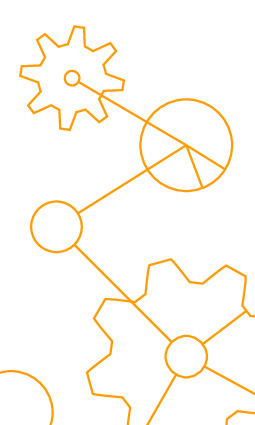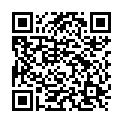|
|
|
| Module code: WIMAScWPF-W16 |
|
1V+1U (2 hours per week) |
|
3 |
| Semester: 2 |
| Mandatory course: no |
Language of instruction:
German |
Assessment:
Written exam or written composition
[updated 18.12.2018]
|
WIMAScWPF-W16 Industrial Engineering, Master, ASPO 01.10.2014
, semester 2, optional course, general subject
|
30 class hours (= 22.5 clock hours) over a 15-week period.
The total student study time is 90 hours (equivalent to 3 ECTS credits).
There are therefore 67.5 hours available for class preparation and follow-up work and exam preparation.
|
Recommended prerequisites (modules):
WIMASc145 Manufacturing Technologies
WIMAScWPF-W6 Operations Management
[updated 11.02.2020]
|
Recommended as prerequisite for:
|
Module coordinator:
Prof. Dr.-Ing. Christian Köhler |
Lecturer:
Lehrbeauftragte
[updated 11.02.2020]
|
Learning outcomes:
After successfully completing this module, students will _
... be familiar with the origins, range and current status of Industry 4.0
_ be familiar with the current challenges, constraints and requirements of Industry 4.0.
_ be familiar with the initial implementation of Industry 4.0, but also with the existing limits of implementation in production plants.
... understand the relevance of technology, organization and employees in implementing Industry 4.0.
_ will be familiar with strategies and process models for implementing Industry 4.0 in manufacturing companies and will be able to implement these operationally.
_ be familiar with existing concepts in today´s research for implementing Industry 4.0, especially in SMEs, amidst very limited resources.
_ be familiar with strategies and process models, especially with regard to the involvement of social partners, in the development and design of I 4.0 implementations
_ be aware of current Industry 4.0 implementation, especially with regard to the possibilities/benefits and limits of assistance systems in manufacturing companies.
[updated 18.12.2018]
|
Module content:
- Industry 4.0 - The Basics
- I 4.0 principles, significance, organizational design principles
- I 4.0 challenges for enterprises (SMEs/NSMEs)
- I 4.0 and new business models (hybrid value creation)
- Visions of tomorrow´s factory: chances and risks
- Adaptability and Industry 4.0
- I 4.0 interactions between technology/organization/employees
- Co-determination aspects: involving social partners
- Changes in work and leadership
- Qualification and employee development under I4.0
- Excerpts from the current status of I4.0 research projects
Operational implementation of Industry 4.0 in companies:
- Process model for introducing Industry 4.0
- Economic evaluations during the introduction of I 4.0
- Lean methods and adaptability as a basis for introducing I4.0
- Procedures for involving social partners (involvement and regulations)
- I 4.0 in practice: context-sensitive, intelligently adaptive assistance and knowledge services
- I 4.0 in practice: synchronous production through semi-autonomous planning and human-centric decision support
[updated 18.12.2018]
|
Teaching methods/Media:
Projector-presentation, blackboard, lecture notes, case studies, discussions, group work
[updated 18.12.2018]
|
Recommended or required reading:
1.
Praxishandbuch Industrie 4.0: Branchen - Unternehmen - M & A
Lucks, Kai. - 1. Auflage 2017. - Stuttgart: Schäffer-Poeschel, 2017
2.
Industrie 4.0 konkret: Ein Wegweiser in die Praxis [electronic resource]
/ Jahn, Myriam. - Wiesbaden: Springer Gabler, 2017
DOI-Link: 10.1007/978-3-658-17770-6
3.
Klein(st)- und Mittelbetriebe im Kontext zu Industrie 4.0: die neue Entwicklung der Wirtschaft
Kettl, Alexander. - Saarbrücken: AV Akademikerverlag, [2017] [Hochschulschrift]
7.
Handbuch Industrie 4.0: Geschäftsmodelle, Prozesse, Technik
Reinhart, Gunther [HerausgeberIn]. - München: Hanser, [2017]
8.
Handbuch Industrie 4.0
Vogel-Heuser, Birgit [HerausgeberIn]; Bauernhansl, Thomas [HerausgeberIn]; Ten Hompel, Michael [HerausgeberIn]. - Berlin; [Heidelberg]: Springer Vieweg
9.
Integrierte Unternehmensplanung: Anforderungen, Lösungen und Echtzeitsimulation im Rahmen von Industrie 4.0
Mosler, Andreas. - Wiesbaden: Springer Gabler, [2017]
10. Die digitale Transformation gestalten
acatech [HerausgeberIn]. - München: Hanser, [2017]
11. Wandlungsfähigkeit durch modulare Produktionssysteme
Kreimeier, Dieter [HerausgeberIn]. _Herrmann, Klaus [HerausgeberIn]. _ Frakfurt a.M.: VDMA Verlag, [2013]
[updated 18.12.2018]
|


